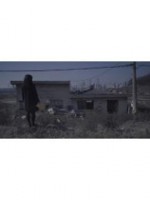130, Suyeonggangbyeon-daero,
Haeundae-gu, Busan, Republic of Korea,
48058
DATABASE
Time to Read Poems (2021)
< Si Ik-neun Si-gan >
This film talks about five free spirits as the director encounters them. Freedom in this film is not romantic but desperate, trying to break the chains of life that drive people living today in one direction. They dream of a life that doesn’t have to take a job as a dream, or pursue economic stability as a life goal, but on that finds true meaning. This is something people all dream of realizing yet end up accepting as nothing but a fantasy. The film delivers the voice of ...more
| Genre | Documentary | Production Status | Released |
|---|---|---|---|
| Running Time | 73min | Release Date | Mar 25, 2021 |
| Country | South Korea | Rating | 12 |
| Language | Korean | Co-Production | N |
| Original |
-
Number of Screens : 15
-
Total Admissions : 701
-
Total Gross : $3,299
As of Feb 16, 2026
-
Mitte des Lebens | crissi63@hanmail.net
- Republication, copying or redistribution by any means is prohibited without the prior permission of KOFIC and the original news source.
















